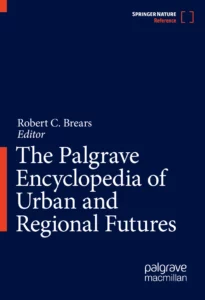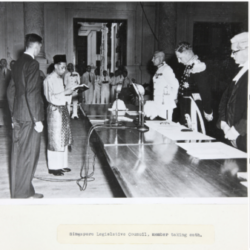都市・地域の未来百科事典
都市・地域の未来を見つめる全300項目―SDGs・スマートシティ
都市・地域の未来百科事典
The Palgrave Encyclopedia of Urban and Regional Futures

Editor: Robert Brears, Our Future Water, Christchurch, New Zealand
2022:12 2,180 p. ISBN 978-3-030-87744-6
(Palgrave Macmillan / Springer) -DE-
EUR 1199.99
Web販売価格:税込¥227,671 / 標準価格:税込¥294,356
*2024年7月29日時点の価格です。実際の価格は、為替レートや出版社の都合により変動いたしますので、最新の価格は以下オンラインストアリンクをご参照ください。
*Web販売価格は、紀伊國屋書店BookWeb Proでご注文され、付帯作業を伴わない納品を行い、弊社標準書式による請求書を発行し遅滞なくお支払いただく場合、あるいは、クレジットカードでお支払いいただく場合に適用される販売価格です。
概要
都市部は世界経済の原動力であり、学習・文化・イノベーションでも中心的役割を果たしていますが、スプロール化、炭素排出量の増加、貧困、失業率の上昇など多くの課題に直面しています。
本書は、都市・地域開発の専門的かつ学際的視座を示すレファレンスです。アルファベット順の全300項目にて、気候、ライフスタイル、所得水準などが異なる多様な都市が、いかにシナジーを生み出し、トレードオフの問題を改善しているのかを整理します。「都市持続可能性」「スマートシティ」「エネルギー・システム」「食品廃棄物」「グリーンインフラ」「持続可能な交通」「SDGs」「都市地理学」といった注目トピックが満載です。日本関連では「日本の都市・地域開発に関する持続可能な目標」に1章を充てています。
都市・地域研究の必携レファレンスとして、本書をおすすめいたします。
価格照会・ご購入
- 紀伊國屋書店でご購入(一般の方向け):紀伊國屋書店ウェブストア
- 紀伊國屋書店でご購入(法人の方向け):紀伊國屋書店BookWeb Pro
※本件についてのお問い合わせ、お見積りについては最寄りの紀伊國屋書店営業所もしくはこちらまでお願いいたします。
収録明細
- Adapting Cities to Climate Change
- Adapting to a Changing Climate Through Nature-Based Solutions
- Age-Friendly Future Cities
- Amsterdam’s Pathway to Climate Neutrality: Creating an Enabling Environment
- Applying Smart Frameworks to Arctic Cities
- Artificial Urban Wetlands
- At the Intersection and Looking Ahead
- Augmented Reality: Robotics, Urbanism, and the Digital Turn
- Bag-of-Words Model: Sustainability Lacks Influencers
- Behavioral Science Informed Governance for Urban and Regional Futures
- Beyond Knowledge: Learning to Cope with Climate Change in Cities
- Big Data for Smart Cities and Inclusive Growth
- Bioregionalism
- Blue-Green Cities: Achieving Urban Flood Resilience, Water Security, and Biodiversity
- Building Community Resilience
- Building Energy: How Building Efficiency Can
- Be Improved in Government Facilities
- Building Resilient Communities Over Time
- Butterfly Gardening in Colombo, Sri Lanka: Approach to Biodiversity Conservation, Monitoring, Education, and Awareness in Urbanizing Habitats
- Carbon Neutral Adelaide
- Carbon Sequestration Through Building-Integrated Vegetation
- The Centrality of Ellensburg
- The Challenges for Wildland-Urban Interfaces (WUI) in Metropolitan Areas: Reducing Fire Risk, Providing Employment Opportunities, and Preserving Natural Habitat
- Challenges of Delivering Regional and Remote Human Services and Supports
- Changing Paradigms in Urban Planning 2000–2020
- Children, Urban Vulnerability, and Resilience
- Circular Cities
- Circular Economy and the Water-Food Nexus
- Circular Economy Cities
- Circular Water Economy
- Cities in Nature
- City Financing and Social Urbanism in Latin America: The Importance of Good Fiscal Management
- City Visions: Toward Smart and Sustainable Urban Futures
- Climate Change and Surface Water Resources in Sri Lanka
- Climate Gentrification
- Climate Resilience in Informal Settlements: The Role of Natural Infrastructure
- Climate-Induced Relocation
- Climate-Resilient Technologies and Innovations for Sustainable Agriculture, Improved Landscape, and Food Security
- Closing the Loop on Local Food Access Through Disaster Management
- Collaborative Climate Action
- Collective Emotions and Resilient Regional Communities
- Collectively Adapting to Sea-Level Rise Through Disaster Response, Commons Management, and Social Mobilization
- Community Engagement and Climate Change: The Value of Social Networks and Community-Based Organizations
- Community Engagement for Urban and Regional Futures
- Community in a Changing Climate: Shaping Urban and Regional Futures
- Community Vulnerability to Extractive Industry Disasters
- Computational Urban Planning
- Concepts, Approaches, and Methodologies for Ecological Flood Resilience Assessment: A Review
- Conceptualizing the Urban Commons
- Connecting Urban and Regional Innovation Ecosystems to Enhance Competitiveness
- Crops and Panels: A Farm Model with Trade-offs in the Water-Energy-Food Nexus
- Digital City Modeling and Emerging Directions in Public Participation in Planning
- Digital Twin and Cities
- Digitalization, Urbanization, and Urban-Rural Divide
- Disaster Risk in Informal Settlements andOpportunities for Resilience
- Disruptive Mobility: Sharing Electric Autonomous Vehicles (SEAVs) Reshape Our Future Cities
- Ecosystems Restoration and Habitats Enhancement
- Education for Inclusive and Transformative Urban Development
- The Elusive Quest for Affordable Housing:Five Principles of a Comprehensive Approach
- Embedding Justice in Resilient Climate Change Action
- Emerging Concepts Exploring the Role of Nature for Health and Well-Being
- Environmental Education and Non-governmental Organizations
- Epidemiological Shifts in Urban Bangladesh
- ESG in Real Estate Investment
- European Green Deal and Development Perspectives for the Mediterranean Region
- Faith Communities as Hubs for Climate Resilience
- Feminist Planning and Urbanism: Understanding the Past for an Inclusive Future
- Financing: Fiscal Tools to Enhance Regional Sustainable Development
- Fisheries Crime and Ocean Resilience
- Formulating Sustainable Foodways for the Future: Tradition and Innovation
- From Vulnerability to Urban Resilience to Climate Change
- Furthering the Sustainable Development Agenda by Putting Urban Heritage and Value Extraction at the Center
- Future Foods for Urban Food Production
- The Future of Reducing Urban Vulnerability with Perspectives of Child Development in Zimbabwe
- Future of the City-Region Concept and Reality
- Future of Urban Governance and Citizen Participation
- Future of Urban Land-use Planning in the Quest for Local Economic Development
- Gender Inequalities in Cities: Inclusive Cities
- Getting Our Built Environments Ready for an Aging Population
- Global Homelessness: Neoliberalism, Violence, and Precarious Urban Futures
- Global Survey of Food Waste Policies
- The Governance of Smart Cities
- Governing for Food Security: A Cultural Perspective
- Green and Blue Infrastructure (GBI) in Urban Areas
- Green and Smart Cities in the Developing World
- Green Belts
- Green Cities
- Green Cities in Theory and Practice
- Green Cities: Implementing the Miyawaki Method in Lahore, Pakistan
- Green Cities: Nature-Based Solutions, Renaturing and Rewilding Cities
- Green Economy Policies to Achieve Water Security
- Green Infrastructure
- Green Infrastructure in Metropolis Dimension: Case Study of Llobregat River, Barcelona Metropolitan Area
- Growth, De-growth, and Nature-Based Solutions
- Growth, Expansion, and Future of Small Rural Towns
- Guidelines for Water-Sensitive Informal Settlement Upgrading in the Global South
- Habitat Provisioning
- Harare
- Health and the City: How Cities Impact on Health,
- Happiness, and Well-Being
- Health and the Role of Nature in Enhancing Mental Health
- Healthy Cities
- Hidden Enemy for Healthy Urban Life
- Hidden Potential of Wastewater
- Housing Affordability
- Housing and Development
- How Cities Can Be Resilient
- How Cities Cooperate to Address Transnational Challenges
- Impact of Universities on Urban and Regional Economies
- Improving Social Equity and Community Health and Well-Being in Low-Income Suburbs and Regions
- Increasing Young People’s Environmental Awareness
- Industrial Symbiosis
- Innovation to Bring Nature-Based Solutions to Life: Tales of Two Cities
- Integrated Urban Green and Grey Infrastructure
- Integrating Agriculture, Forestry, and Food Systems into Urban Planning: A Key Step for Future Resilient and Sustainable Cities
- Integrating Sustainability into Construction Project Management
- Internationalization of Cities
- The Interplay of Intersectionality and Vulnerability Towards Equitable Resilience
- Land Use Planning Systems in OECD Countries
- Lead Exposure in US Cities
- Local and Regional Development Strategy
- Localizing Sustainable Development Goals (SDGs) Through Co-creation of Nature-Based Solutions (NBS)
- Low-Carbon Transport
- Mainstreaming Blue Green Infrastructure in Cities: Barriers, Blind Spots, and Facilitators
- Making of Smart and Intelligent Cities
- Managing Africa’s Urban Flooding Challenges from the Bottom Up: A View from Ghana
- Managing the Risk of Wildfire Where Urban
- Meets the Natural Environment
- Master Planned Estates and the Promises of Suburbia
- The Mediatized City
- Meeting SDG6: Ensuring Safe Drinking Water for All in Rural India
- Metropolitan Discipline: Management and Planning
- Moving Towards Sustainable, Liveable, and Care-Full Urban Environments: Pre-schoolers’ Rights and Visions for Planning Just, Socially, and Ecologically Integrated Cities
- Multiple Benefits of Green Infrastructure
- Multi-stakeholder Partnerships to Support Climate Migrants in Fragile Cities
- Nature-Based Solutions for River Restoration in Metropolitan Areas
- Need for Greenspace in an Urban Setting for Child Development
- Need for Nature Connectedness in Urban Youth for Environmental Sustainability
- Neither Rural Nor Urban: A Critical Review of the Fringe Dynamics of Settlements
- Neoliberalism and Future Urban Planning
- Networking Collaborative Communities for Climate-Resilient Cities
- New Cities
- New Forms of Shared Governance and Local Action Plan in Socially Vulnerable Settlements
- The New Leipzig Charter: From Strategy to Implementation
- New Localism: New Regionalism
- New Orbital Urbanization
- Overcoming Barriers in Green Infrastructure Implementation
- An Overview of the Relationship of the Sustainable Development Goals and Urban and Regional Development
- Participatory Governance for Adaptable Communities
- Participatory Irrigation Management: Barind Model – A New Sustainable Initiative
- Participatory Planning: A Useful Tool for the Development of Sustainable Mega-City Regions
- Perception and Reality for Sustainable Irrigation System with Micro-irrigation
- Peri-urban Regions
- Peri-urbanization
- Personal Delivery Robots: How Will Cities Manage Multiple, Automated, Logistics Fleets in Pedestrian Spaces?
- Philanthropy in Sustainable Urban Development: A Systems Perspective
- Planning for Food Security in the New Urban Agenda
- Planning for Peri-urban Futures
- Planning Healthy and Livable Cities
- Policies for a Just Transition
- Policy and Practices of Nature-Based Solutions to Build Resilience in Seoul, Korea
- The Practice of Resilience Building in Urban and Regional Communities
- Pre-schoolers and Sustainable Urban Transport
- Proptech: Issues for the Future
- Public Awareness of and Participation in Municipal Solid Waste Management in Urban Areas of the Mekong River Delta, Vietnam
- Public Policies to Increase Urban Green Spaces
- Public Procurement for Regional and Local Development
- Public Space
- Public-Private Partnerships: The Danish Way of Turning Climate Change Measures into Policies and Long-Term Commitments
- Rainwater Harvesting for Water Security in Informal Settlements: Techniques, Practices, and Options
- Regulation of Urban and Regional Futures
- Residential Crowding in Urban Environments
- Resilient Rural Electrification for the Twenty-First Century
- Resource Effectiveness in and Across Urban Systems
- Resource Recovery from Human Excreta in Urban and Regional Settlements
- Responsibility to Prepare and Prevent (R2P2): Applying Unprecedented Foresight to Addressing Unprecedented Climate Risks
- Role of Disaster Relief Policy in Building Resilient Coastal Regions in the United States
- Role of Nature for Ageing Populations
- Role of Urban Agriculture Policy in Promoting Food Security in Bulawayo, Zimbabwe
- Rural-Urban Continuum Settlements: Selected Case Studies
- Sanctuary Cities and Its Impact on Quality of Life of Its Citizenry
- Senegalese Ecovillage Network
- Shrinking Towns and Cities
- Small Towns in Asia and Urban Sustainability
- Small Water Retention Measures in Haluzice Gorge
- Smart Agriculture and ICT
- Smart City: A Universal Approach in Particular Contexts
- Smart Densification
- Smart Grids to Lower Energy Usage and Carbon Emissions: Case Study Examples from Colombia and Turkey
- Smart(er) Cities in the Time of Change
- The Social and Solidarity Economy
- Social Urbanism: Transforming the Built and Social Environment
- Soil Water Erosion Assessment for Conservation Planning in a Data-Pour Contest
- Solar Energy Communities in the Urban Environment
- The Source Waters of Tanga
- Spatial Demography as the Shaper of Urban and Regional Planning Under the Impact of Rapid Urbanization
- Spatial Justice and the Design of Future Cities in the Developing World
- Spatial Planning Under the Impact of Urbanization and Rural Transformation in Zimbabwe: A Review of Theories, Philosophies, and Practices
- The State of Extreme Events in India
- Stewarding Street Trees for a Global Urban Future
- Strategies for Liveable and Sustainable Cities: The Singapore Experience
- Strategies for Taming the City
- Sustainability Competencies in Higher Education
- Sustainability Transition and Climate Change Adaption of Logistics
- The Sustainable and the Smart City: Distinguishing Two Contemporary Urban Visions
- Sustainable Cities via Urban Ecosystem Restoration
- Sustainable Community Masterplan
- Sustainable Development and Responsible Tourism: The Grijalva-Usumacinta Lower River Basin
- Sustainable Development Goals
- Sustainable Development Goals and Urban Policy Innovation
- Sustainable Development Goals from an Urban Perspective
- Sustainable Development Goals in Relation to Urban and Regional Development in Japan
- Sustainable Urban Mobility
- Systemic Innovation for Thrivable Cities
- Theme Cities Networks
- Toward a Sustainable City
- Toward Smart Public Lighting of Future Cities
- Towards a Social Capital Resilience Model in Coping with Floods and Droughts: The Case of Muzarabani, Zimbabwe
- Transnational Crimes: Global Impact and Responses
- Transnational Migrants on the Margin
- Transport Resilience in Urban Regions
- Transportation and Land Use Integration: Shaping Transportation Demand and Delivering Transport Supply
- Transportation and Mobility
- Understanding Smart Cities Through a Critical Lens
- Understanding Urban Engineering
- Understanding Women’s Perspective of Quality of Life in Cities
- Unpacking Cities as Complex Adaptive Systems
- Urban and Regional Leadership
- Urban Atmospheric Microbiome
- Urban Climate Resilience
- Urban Commons as a Bridge Between the Spatial and the Social
- Urban Densification and Its Social Sustainability
- Urban Ecosystem Services and Sustainable Human Well-Being
- Urban Food Gardens
- Urban Forestry in Sidewalks of Bogota, Colombia
- Urban Futures: Pathways to Tomorrow
- Urban Greening and Green Gentrification
- Urban Health Paradigms
- Urban Heat Islands
- Urban Management in Bangladesh
- The Urban Planning-Real Estate Development Nexus
- Urban Policy and the Future of Urban and Regional Planning in Africa
- Urban Resilience
- Urban Resilience: Moving from Idealism to Systems Thinking
- Urban Structure and Its Impact on Mobility Patterns: Reducing Automobile Dependence Through Polycentrism
- Urban Sustainability: Multifunctional and Multipurpose Planning of Urban Space
- Urban Well-Being
- Urbanization, Planning Law, and the Future of Developing World Cities
- US Urban and Suburban Yardscaping
- The Vegan Food Justice Movement
- Voluntary Programs for Urban and Regional Futures
- Vulnerability to Food Insecurity Among the Urban Poor in Sri Lanka: Implications for Policy and Practice
- Wadi Sustainable Agriculture Model, The
- Walkable Access and Walking Quality of Built Environment
- Wash (Water, Sanitation, and Hygiene): Infrastructure as a Measure of Sustainable Development
- Water Policy in the State of Tabasco
- Water Pollution and Advanced Water Treatment Technologies
- Water Security and Its Role in Achieving SDG 6
- Water Security and the Green Economy
- Water Security, Sustainability, and SDG 6
- Water, Sanitation, and Hygiene Question of Future Cities of the Developing World
- Watershed Sustainability: An Integrated River Basin Perspective
- Water-Smart Cities
- Weathering Change
- Why Large Cities Won’t Survive the Twenty-First Century
- Wildlife Corridors
- Women in Urbanism, Perpetuating the Bias?
- Youth and Public Transport
- Zombie Subdivisions
- Zooming Regions into Perspective
(学術洋書部)





